Do Essential Oils Evaporate
Essential oils have gained popularity for their various therapeutic benefits, but have you ever wondered if they can evaporate?
We will explore the fascinating world of essential oils, including how they are extracted, different methods of use, and the benefits of evaporation.
Discover the factors that affect the evaporation of essential oils, how to evaporate them effectively, and do essential oils dissolve in water.
So, grab a cup of tea, sit back, and let’s dive into the world of essential oils!
Key Takeaways:
What Are Essential Oils?
Essential oils are natural compounds derived from plants that capture the plant’s aroma and flavor. They are extracted through distillation or mechanical methods from various parts of plants like flowers, leaves, stems, roots, or bark.
One of the fascinating things about essential oils is that each oil carries its own unique blend of chemical compounds that give it specific therapeutic properties and fragrances. For example, lavender oil is known for its calming and relaxing effects, while peppermint oil is often used for its invigorating and uplifting qualities. The wide range of essential oils available means there is something to cater to almost every need, whether it be for skincare, aromatherapy, or even household cleaning.
How Are Essential Oils Extracted?
The extraction of essential oils involves methods like distillation, expression, or solvent extraction. Each method is chosen based on the plant material and the desired properties of the oil.
In distillation, water or steam is used to extract oils from the plant material. This method is suitable for delicate flowers or leaves.
Expression, on the other hand, involves mechanically pressing the plant material to release the oils. Citrus fruits are often processed this way.
Solvent extraction utilizes solvents like hexane to separate oils from the plant matter. This method is efficient but requires careful purification to remove any residual solvents.
What Are the Different Methods of Using Essential Oils?
There are several methods for using essential oils, including inhalation, topical application, and ingestion. Each method offers unique benefits and applications in aromatherapy, perfumery, and blending practices.
One of the most popular applications of essential oils is in aromatherapy, where these potent plant extracts are utilized to promote relaxation, uplift mood, and enhance overall well-being.
Essential oils can be diffused into the air using a diffuser for inhalation therapy, which helps to create a calming environment.
Blending different essential oils together using specific mixing techniques can create customized scents for perfumery practices. This art of blending requires a good understanding of the individual properties of each oil and how they harmonize with one another to create a balanced and pleasing aroma.
Inhalation
Inhalation is a common method of using essential oils for aromatherapy purposes. It involves breathing in the aroma of the oils through methods like diffusers or steam inhalation to promote relaxation and wellbeing.
Diffusers are popular devices that help disperse essential oils into the air, allowing you to breathe in the therapeutic benefits. These devices come in various types such as ultrasonic, nebulizing, or heat diffusers, each offering different ways of releasing the oils into the air. Ultrasonic diffusers use water to create a fine mist infused with the oils, while nebulizing diffusers break the oils into tiny particles for direct inhalation. Steam inhalation, on the other hand, involves adding a few drops of essential oils to hot water and inhaling the steam to clear nasal passages and support respiratory health.
Topical Application
Topical application involves applying essential oils directly to the skin.
Proper dilution is essential to prevent skin irritations. It is crucial to always use a carrier oil when applying essential oils topically to reduce the risk of adverse reactions. Essential oils such as lavender, tea tree, and chamomile are known for their skin-friendly properties and can help soothe irritated skin. These oils have anti-inflammatory and antimicrobial effects, making them suitable for addressing various skin conditions, including acne, eczema, and rashes.
Ingestion
Ingesting essential oils involves consuming them orally. This method should be approached with caution, as improper ingestion can be dangerous, especially for children and pets.
When ingesting essential oils, it is vital to ensure the oils are of high quality and suitable for internal use. Always dilute essential oils in a carrier oil or water before ingestion to prevent irritation or adverse reactions.
Consulting a qualified healthcare professional before internal use is highly recommended, as some oils can interact with medications or cause toxic effects if not used correctly. It is crucial to start with small doses and observe for any allergic reactions or digestive issues. Remember to store essential oils safely out of reach of children and pets to prevent accidental ingestion.
Do Essential Oils Evaporate?
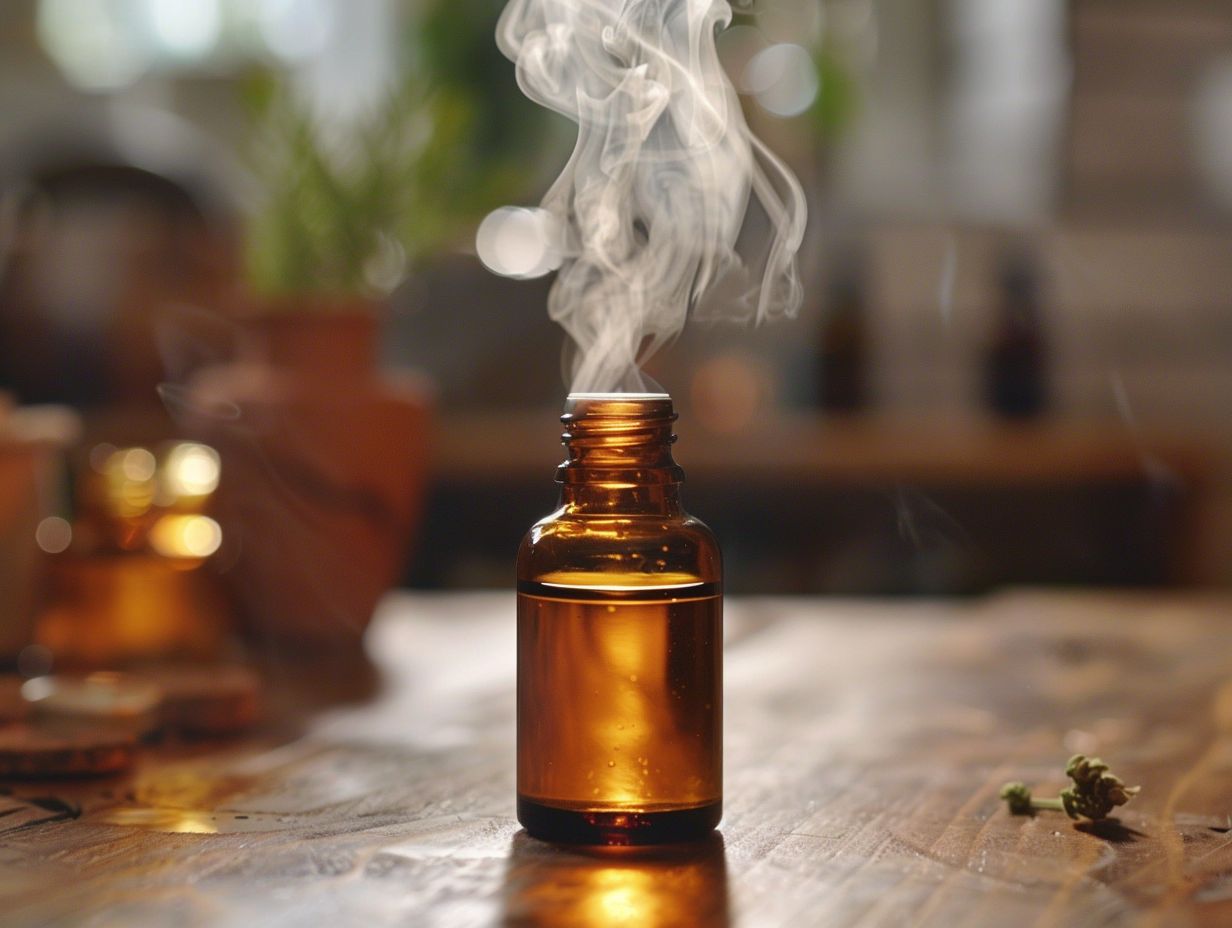
Essential oils are volatile substances that can evaporate at different rates depending on factors like temperature, air circulation, and molecular size.
One key factor influencing the evaporation properties of essential oils is temperature. Higher temperatures can accelerate the evaporation process, releasing the aromatic molecules more quickly into the air. Air exposure also plays a significant role, as oils left uncapped or exposed to air for extended periods tend to evaporate faster. The molecular characteristics of the oils, such as their weight and complexity, can impact how easily they evaporate. Lighter molecules evaporate more quickly than heavier ones, affecting the overall volatility of the oil.
What Factors Affect the Evaporation of Essential Oils?
Several factors can influence the evaporation of essential oils, such as storage conditions, exposure to air, humidity levels, and the surface area of the oil when applied.
Proper storage practices play a vital role in maintaining the longevity of essential oils. Storing them in dark glass bottles away from direct sunlight and heat can help preserve their potency. Environmental factors like temperature variations and air circulation in the storage area can impact evaporation rates. High humidity levels can accelerate the evaporation process, while the surface area of the oil exposed to air also affects the speed at which it dissipates. Understanding these factors can help users maximize the benefits of their essential oils.
What Are the Benefits of Evaporating Essential Oils?
Evaporating essential oils can extend their shelf life, enhance their aroma, and reduce the need for frequent and expensive replenishments.
When essential oils are left open to the air, the volatile compounds that give them their distinct fragrance start to evaporate slowly. This process, known as diffusion, not only prolongs the oils’ efficacy but also enhances their scent quality by releasing the aroma gradually. By utilizing methods like diffusers or evaporation dishes, one can maximize the benefits of essential oils efficiently.
Evaporating essential oils can provide a cost-effective solution by ensuring that the oils are used more efficiently over time. This can lead to significant savings in the long run, as the oils are utilized effectively without unnecessary wastage.
Aromatherapy
Evaporating essential oils is crucial in aromatherapy to release their volatile compounds slowly, ensuring a lasting impact on mood and wellbeing.
This slow and gradual release of volatile oils allows for a sustained diffusion of therapeutic scent molecules into the air, thereby creating a tranquil and calming atmosphere. Such controlled evaporation not only enhances the aromatic experience but also promotes emotional balance and relaxation. When inhaled, these volatile compounds can stimulate the limbic system, the area of the brain responsible for emotions and memories, triggering a positive response that can alleviate stress, anxiety, and even promote better sleep.
Disinfection and Deodorization
Evaporating essential oils can be used for disinfecting and deodorizing spaces, especially in containers or rooms that require a fresh and clean scent. Dark places benefit from the deodorizing effects of certain oils.
When essential oils are evaporated, their natural chemical compounds disperse into the air, acting as powerful disinfectants that can help eliminate harmful bacteria and airborne pathogens. This makes them an excellent choice for maintaining a clean and healthy environment. Along with their disinfecting properties, these oils also possess pleasant deodorizing qualities, effectively masking odors and leaving behind a refreshing aroma. The benefits of using essential oils as deodorizers are especially prominent in enclosed or dark spaces, where traditional air fresheners may not reach or last as effectively.
Mood Enhancement
Evaporating essential oils can enhance mood by creating a pleasant atmosphere and reducing negative influences through exposure to uplifting scents in the air.
When essential oils evaporate, their natural aromatic compounds disperse into the air, promoting a sense of relaxation and well-being. These scents can trigger positive emotional responses in the brain, such as reducing stress and anxiety levels.
- The air-purifying properties of certain essential oils can also help cleanse the atmosphere, making it more conducive to positive thoughts and feelings.
- Common mood-enhancing essential oil scents include lavender, citrus, and peppermint, each known for their unique ability to uplift and revitalize.
How to Evaporate Essential Oils?
There are multiple methods to evaporate essential oils, including using a diffuser, a bowl of hot water, or a warm compress to release their aromatic properties into the air.
When using a diffuser, the device disperses the oils in the form of a fine mist, allowing them to evaporate gradually and fill the room with their soothing scents.
A warm compress, on the other hand, involves adding a few drops of essential oil to a bowl of hot water, soaking a cloth in the mixture, and then placing it on the skin to promote relaxation through the gentle diffusion of the oil’s fragrance. Alternatively, immersing a towel in hot water with added essential oils before applying it as a warm compress can also aid in the evaporation process, enveloping the user in the calming aroma.
Using a Diffuser
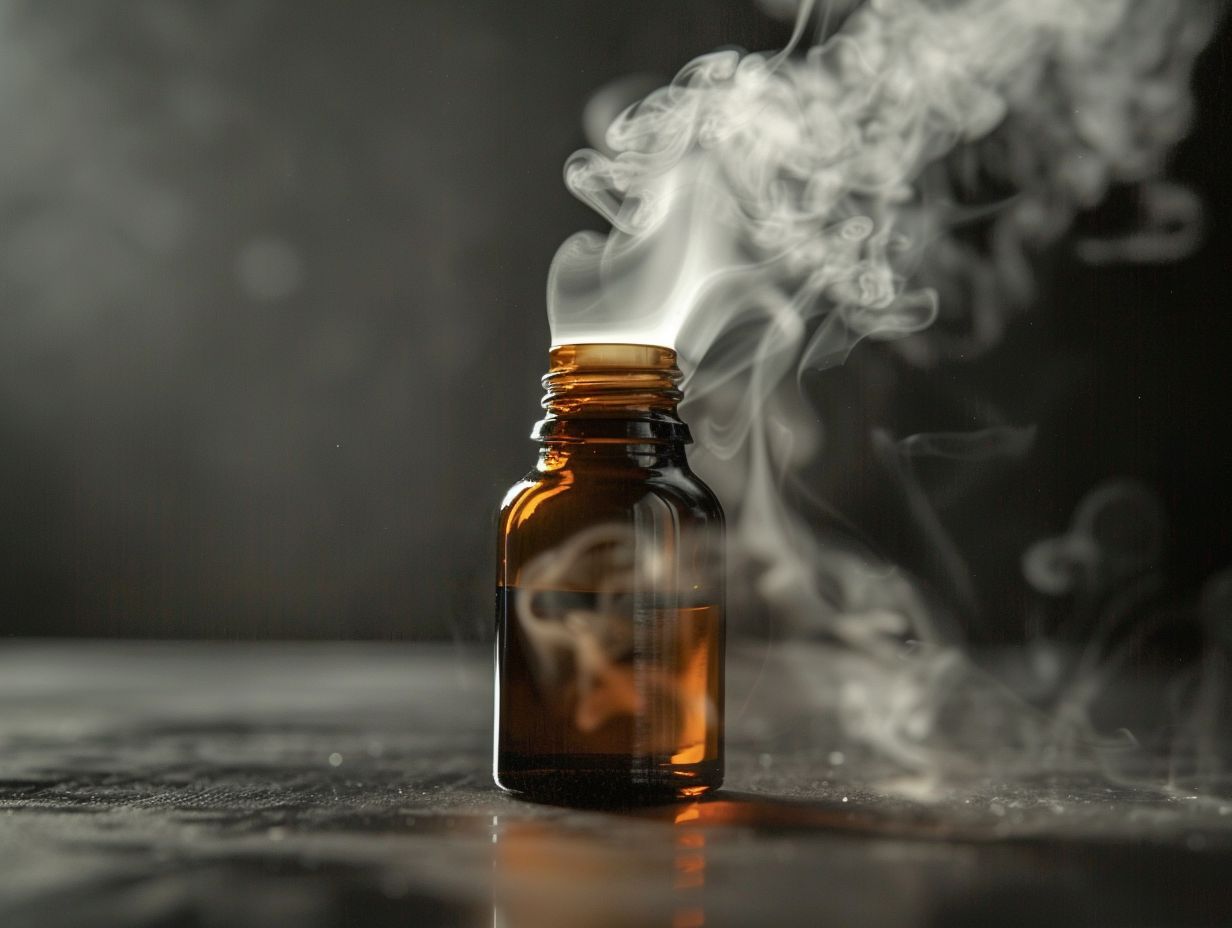
When using a diffuser, one can experiment with various blending techniques to create customized aromatherapy experiences. Blend different essential oils to achieve a desired effect, whether it’s relaxation, focus, or a mood boost. The diffuser method not only disperses the oils effectively but also helps in maximizing their therapeutic benefits. Diffusion benefits include purifying the air, promoting better sleep, and enhancing overall well-being.
Using a Bowl of Hot Water
Evaporating essential oils with a bowl of hot water involves adding a few drops of oil to the water and allowing the heat to facilitate evaporation, releasing the aromatic molecules into the surrounding air.
This technique is a simple yet effective way to enjoy the therapeutic benefits of essential oils while creating a pleasant ambiance in your space. The heat from the hot water helps to speed up the process of evaporation, allowing the volatile molecules in the oil to disperse more quickly.
By using hot water to evaporate essential oils, you can enhance the diffusion of the scent, filling the room with the desired fragrance in a short amount of time. The warmth also aids in promoting relaxation and improving mood, as the aroma molecules interact with the senses.
Using a Warm Compress
Applying essential oils on a warm compress can help in evaporation, reducing exposure to direct air and allowing the oils to slowly release their beneficial properties.
This method creates a conducive environment for the oils to penetrate the skin deeply, maximizing their therapeutic effects. By being trapped in the warm compress, the oils can maintain their potency for a longer duration, offering prolonged benefits. The warmth also aids in dilating the skin’s pores, facilitating better absorption of the oils into the skin layers. This controlled release mechanism ensures a gradual diffusion of the oil molecules, promoting a sustained interaction with the body.”
Are There Any Risks of Evaporating Essential Oils?
While evaporating essential oils can have numerous benefits, there are associated risks such as skin irritations, respiratory problems, and fire hazards if not used properly.
When using essential oils in a diffuser or for aromatherapy, it is essential to follow safety guidelines to prevent adverse effects. Skin irritations can occur if essential oils are used in high concentrations or if applied directly to the skin without proper dilution. It is recommended to always perform a patch test before topical application to check for any sensitivities. Respiratory problems can arise from inhaling too much of the vaporized oils, leading to symptoms like coughing, shortness of breath, or chest tightness.
Skin Irritation
Skin irritation can occur when essential oils are evaporated in high humidity environments, as moisture can enhance the potency of oils and lead to adverse skin reactions.
Moisture in the air can intensify the effects of essential oils on the skin, making individuals more susceptible to irritation and allergic reactions. The increased humidity can also cause the skin to absorb the oils more quickly, potentially overwhelming the skin’s natural defenses.
To prevent such adverse reactions, it is advisable to dilute essential oils before use and perform a patch test on a small area of skin to check for sensitivity. Ensuring proper ventilation in the room where essential oils are diffused can help reduce the concentration of oils in the air, minimizing the risk of skin irritations.
Respiratory Issues
Prolonged exposure to evaporated essential oils can lead to respiratory problems, especially in poorly ventilated areas or when oils are degraded on surfaces and released over time.
Recent research has shown that individuals who breathe in evaporated essential oils for extended periods may experience irritation in the respiratory tract, such as coughing or wheezing. The duration of exposure plays a significant role in exacerbating these symptoms, with longer periods increasing the likelihood of more severe respiratory issues.
Air quality also plays a crucial role in the impact of inhaling evaporated oils. Poor air circulation and high levels of indoor pollutants can magnify the respiratory risks associated with these oils, further compromising lung health over time.
Surfaces contaminated with degraded essential oils can continuously release volatile compounds into the air, exacerbating respiratory issues even when direct inhalation is not occurring. This underscores the importance of maintaining clean surfaces in areas where essential oils are used to mitigate these potential risks.
Fire Hazards
Certain essential oils are flammable and can pose fire hazards if not stored properly or used near heat sources. Improper storage can also lead to the degradation of oils and decrease their efficacy.
When essential oils are exposed to heat sources or flames, they can ignite due to their volatile nature. It is crucial to keep them away from open flames, stovetops, candles, or any other heat-emitting devices to prevent accidents.
Storing essential oils in a cool, dark place in tightly sealed containers can help mitigate these risks. Maintaining the quality of oils involves keeping them away from direct sunlight, as exposure to light can accelerate their oxidation process, leading to potential hazards.
Frequently Asked Questions
Do Essential Oils Evaporate?
Yes, essential oils are volatile liquids that evaporate at room temperature.
What causes essential oils to evaporate?
Essential oils evaporate due to their molecular structure, which allows them to easily escape into the air.
Do all essential oils evaporate at the same rate?
No, the rate of evaporation can vary depending on the specific properties of each essential oil.
How can I prevent my essential oils from evaporating?
To prevent evaporation, store your essential oils in a cool, dark place with a tight cap or lid.
Can essential oils evaporate if left open?
Yes, essential oils can evaporate if left open for an extended period of time. It is important to always properly seal your oils after use.
Is it normal for essential oils to evaporate over time?
Yes, essential oils are natural products and can evaporate over time, especially if not stored properly. It is recommended to use your oils within 1-2 years of purchase.

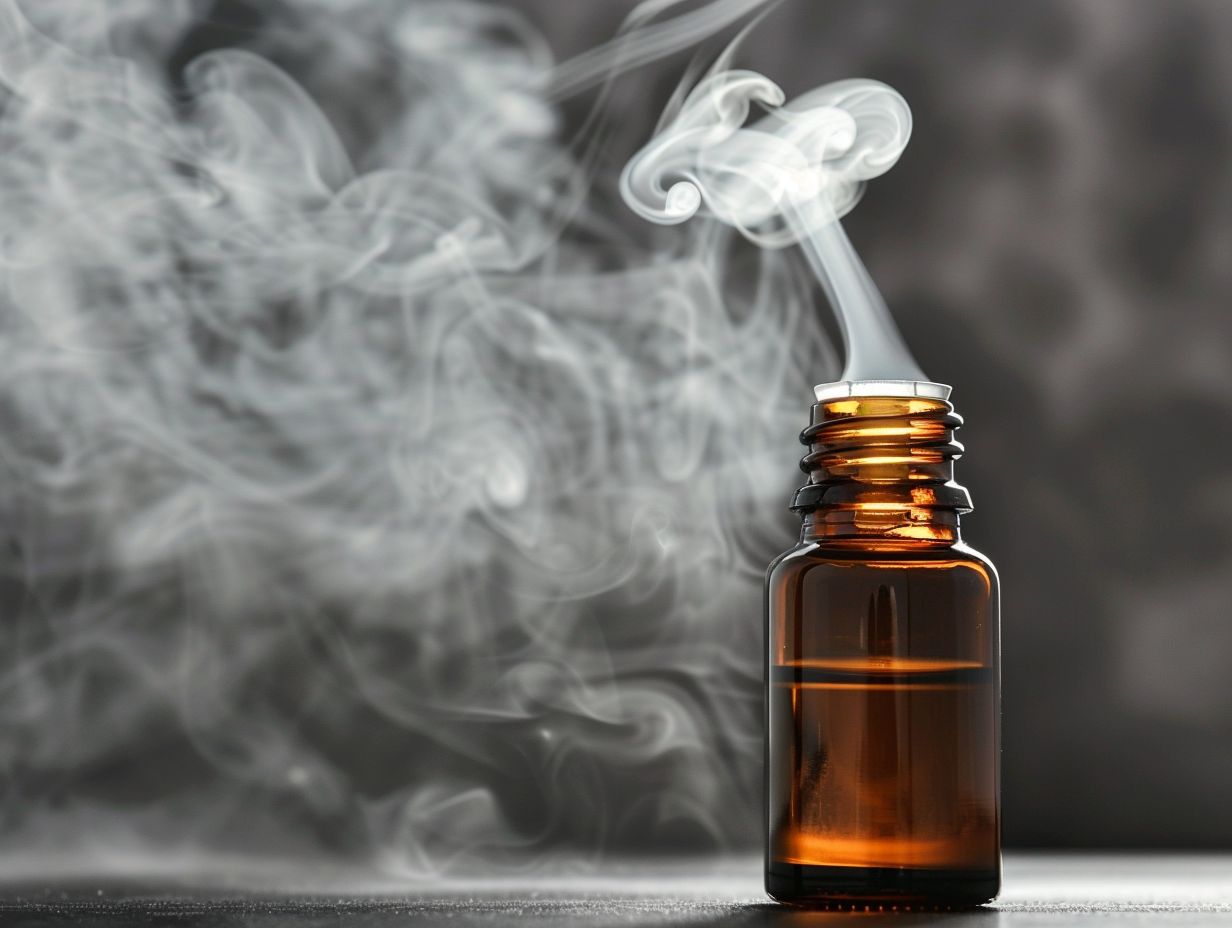
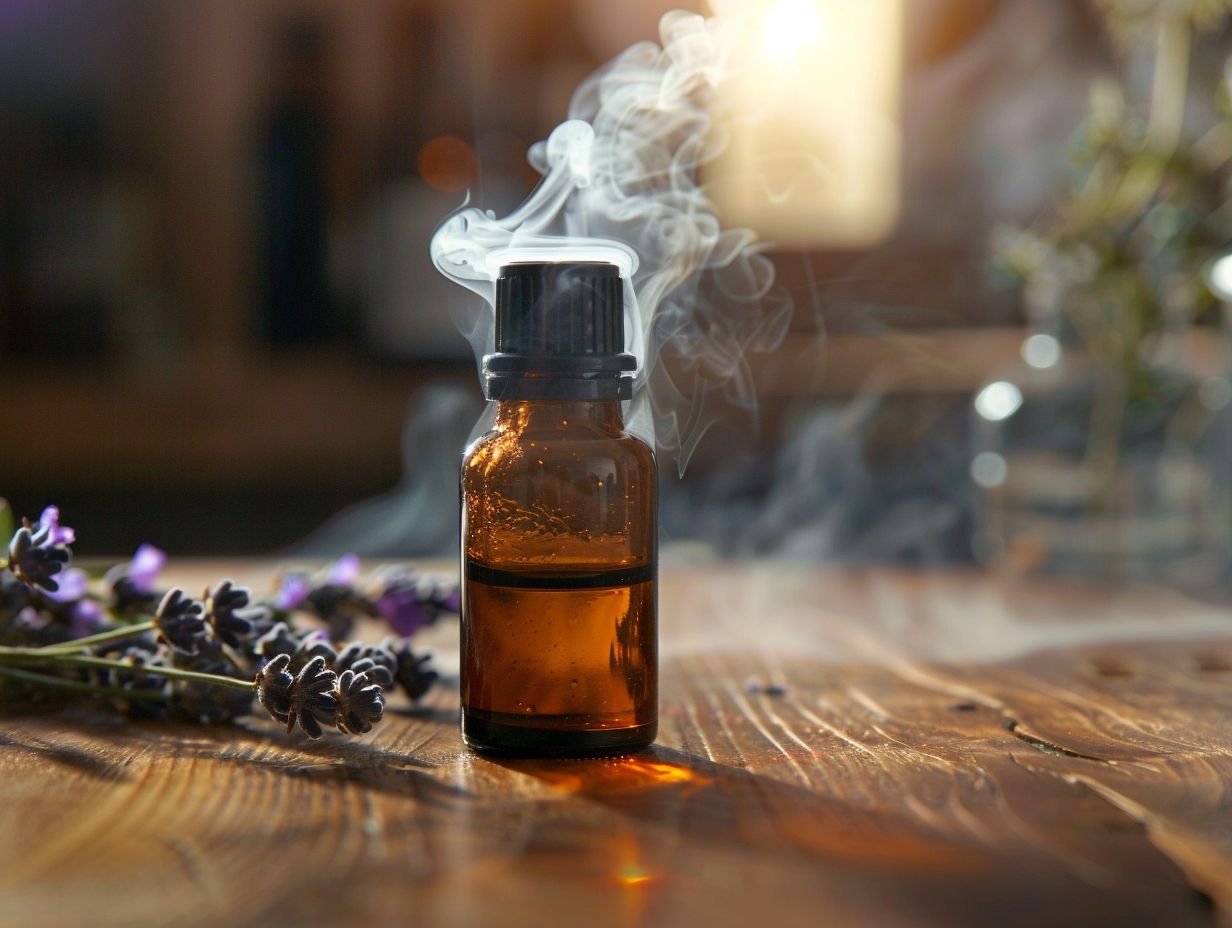

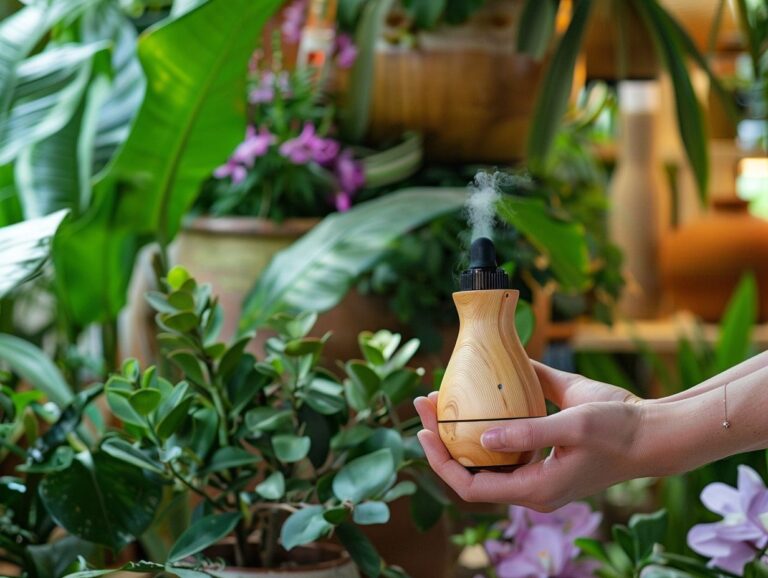


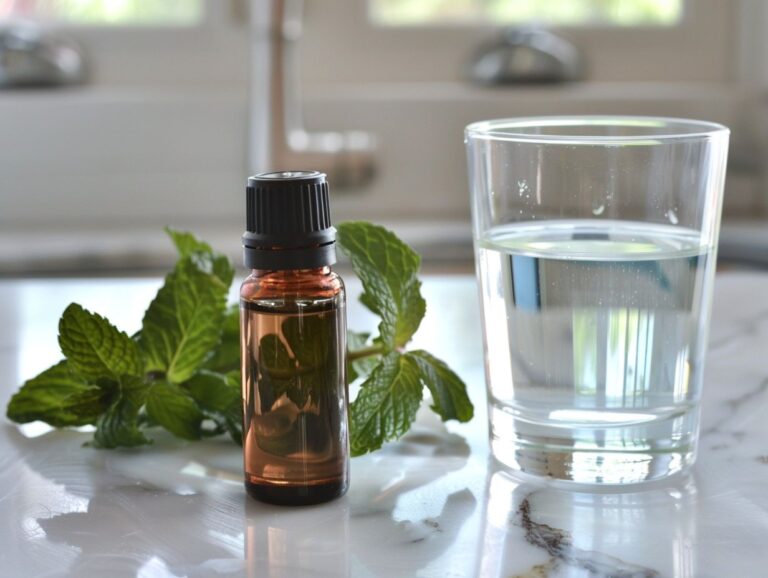

4 Comments